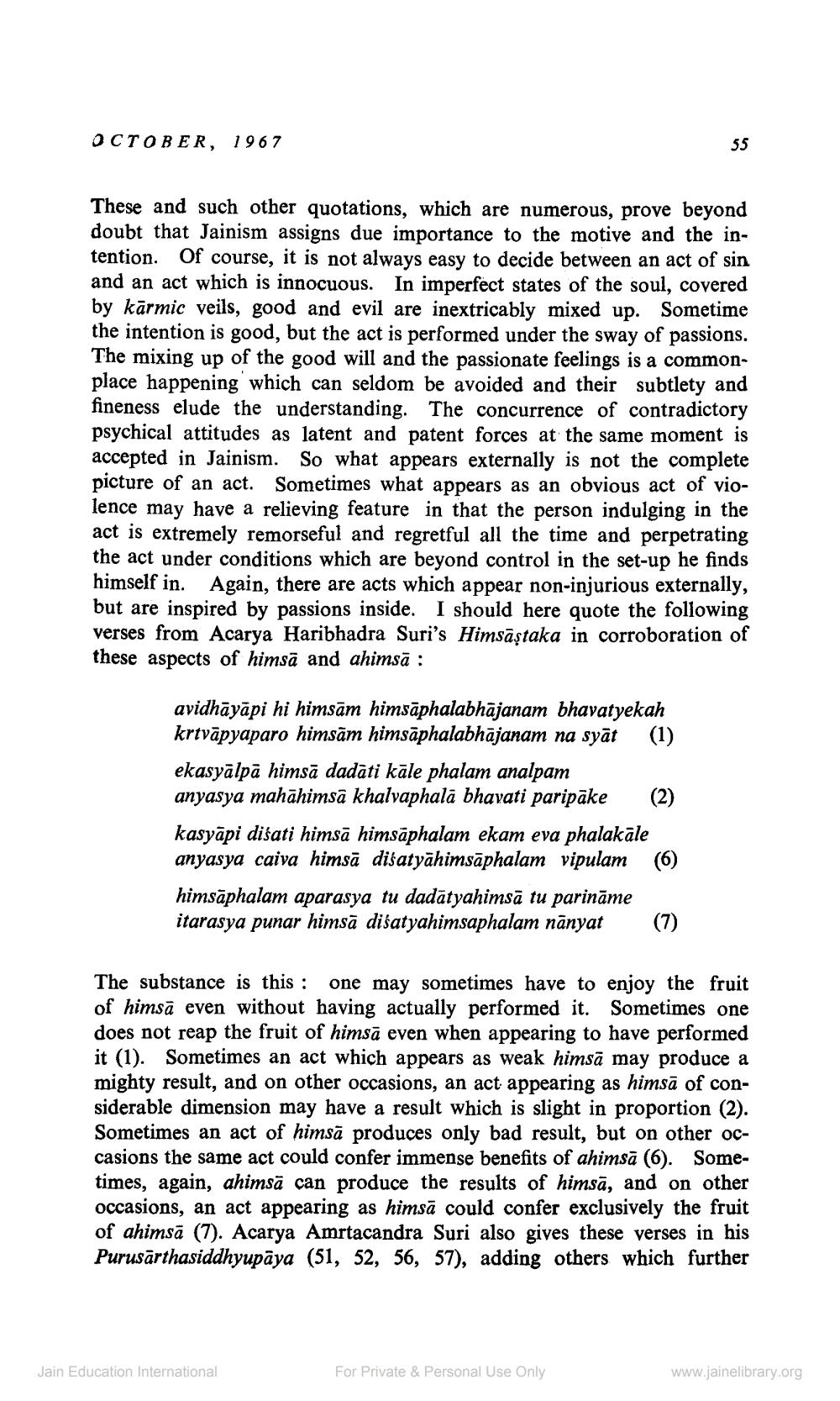________________
OCTOBER, 1967
These and such other quotations, which are numerous, prove beyond doubt that Jainism assigns due importance to the motive and the intention. Of course, it is not always easy to decide between an act of sin and an act which is innocuous. In imperfect states of the soul, covered by karmic veils, good and evil are inextricably mixed up. Sometime the intention is good, but the act is performed under the sway of passions. The mixing up of the good will and the passionate feelings is a commonplace happening which can seldom be avoided and their subtlety and fineness elude the understanding. The concurrence of contradictory psychical attitudes as latent and patent forces at the same moment is accepted in Jainism. So what appears externally is not the complete picture of an act. Sometimes what appears as an obvious act of violence may have a relieving feature in that the person indulging in the act is extremely remorseful and regretful all the time and perpetrating the act under conditions which are beyond control in the set-up he finds himself in. Again, there are acts which appear non-injurious externally, but are inspired by passions inside. I should here quote the following verses from Acarya Haribhadra Suri's Himsāṣtaka in corroboration of these aspects of himsa and ahimsā :
avidhāyāpi hi himsām himsāphalabhājanam bhavatyekah krtväpyaparo himsām himsāphalabhajanam na syat (1) ekasyālpā himsā dadāti kāle phalam analpam anyasya mahāhimsā khalvaphalā bhavati paripäke
kasyāpi disati himsā himsāphalam ekam eva phalakāle anyasya caiva himsā diśatyāhimsāphalam vipulam (6) himsaphalam aparasya tu dadatyahimsā tu parināme itarasya punar himsā disatyahimsaphalam nanyat
(7)
(2)
Jain Education International
55
The substance is this: one may sometimes have to enjoy the fruit of himsā even without having actually performed it. Sometimes one does not reap the fruit of himsā even when appearing to have performed it (1). Sometimes an act which appears as weak himsa may produce a mighty result, and on other occasions, an act appearing as himsā of considerable dimension may have a result which is slight in proportion (2). Sometimes an act of himsă produces only bad result, but on other occasions the same act could confer immense benefits of ahimsa (6). Sometimes, again, ahimsa can produce the results of himsā, and on other occasions, an act appearing as himsă could confer exclusively the fruit of ahimsā (7). Acarya Amrtacandra Suri also gives these verses in his Purusārthasiddhyupaya (51, 52, 56, 57), adding others which further
For Private & Personal Use Only
www.jainelibrary.org




